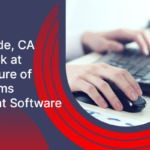Riverside, CA: A Look at the Future of Claims Management Software in 2024
July 25, 2024
In the world of insurance, staying ahead of the game is crucial, especially when it comes to managing claims. Today, technology is rapidly changing how insurers handle claims, with new trends shaping the landscape.
From AI-powered automation to advanced data security measures to seamless integration with mobile and telematics devices, understanding these emerging trends is essential for insurers to thrive.
In this blog we’ll explore the latest developments in claims management software, giving you the insights you need to stay informed and make informed decisions in the ever-evolving insurance industry.
Automation and Artificial Intelligence (AI) Integration
Automation and AI have become important in streamlining claims processes, from initial submission to final settlement. Claims management software uses AI and machine learning to automate tasks like data entry, fraud detection, and claim assessment.
Advanced AI capabilities can analyze vast amounts of data to identify patterns, detect anomalies, and predict claim outcomes. This enables insurers to expedite claim processing while minimizing errors and fraud.
Predictive Analytics for Risk Assessment
Insurers are using predictive analytics to better understand risks and anticipate claims. They analyze past data, external sources, and real-time information to create predictive models. These models help predict the likelihood, severity, and costs of claims accurately. This helps insurers to prevent risks, set prices better, and manage resources well, making them more profitable and competitive.
Enhanced Customer Experience with Self-Service Portals
Today’s consumers expect seamless digital experiences across all touchpoints, even for handling claims. Modern claims software lets customers report and track claims online and upload documents themselves. With user-friendly interfaces and personalized service, insurers make customers satisfied, build loyalty, and stand out in the market.
Integration of Blockchain Technology
Blockchain is becoming popular in insurance for its ability to make claims management more transparent, secure, and efficient. Claims software using blockchain creates records that can’t be changed, making verification and settlement easier and reducing fraud. It also helps insurers work better with partners, speeding up claims resolution.
Mobile Claims Processing and Telematics Integration
Claims management now relies heavily on mobile devices and telematics. With mobile apps, customers can easily report claims, take photos of damage, and communicate with insurers in real-time. Also, by linking with telematics devices, insurers collect useful data on driving habits, accidents, and how vehicles perform. This data helps insurers understand risks better and create personalized pricing plans.
Compliance with Regulatory Requirements
As regulatory scrutiny increases, claims management software must adapt to meet new compliance requirements and data privacy laws. Modern solutions offer robust compliance features to ensure strict adherence to regulatory requirements across jurisdictions. These include audit trails, data encryption, and adaptable workflows to follow rules in different places. Plus, it offers detailed reports to make regulatory reporting easier and show compliance to authorities and others.
Integration with Third-Party Services and APIs
Claims processing software platforms interact with third-party services (APIs) to increase efficiency and expand capabilities. By extracting information from repair, medical, and meteorological sources, these integrations expedite the process and improve the precision and speed of claims processing. This connected system helps insurers work better, make smarter choices, and give customers better service.
Focus on Data Security and Privacy
Insurers take data security seriously due to the rising risk of breaches. They use strong measures like encryption and access controls in claims software to protect customer data. Data protection compliance (GDPR, CCPA) is a top priority for claims management software vendors. This ensures insurers stay compliant and avoid fines and reputational harm.
Conclusion
In conclusion, understanding emerging trends in claims management software is crucial for insurers to stay ahead in the industry. With a focus on data security, integration with third-party services, and enhancing customer experiences through mobile and telematics integration, insurers can streamline processes and improve efficiency.
By embracing these trends, insurers can better manage risks, provide personalized services, and ensure compliance with regulations like GDPR and CCPA. Keeping up with these advancements will be key to maintaining competitiveness and meeting evolving customer expectations in the future.
Experience the power of advanced claim management software with Datagenix. Contact us now for a personalized demo and take your claims management to the next level.
7 Features Every Online Claim Management System Needs
June 27, 2024What to Look for in Claims Management Software?
May 8, 2024









